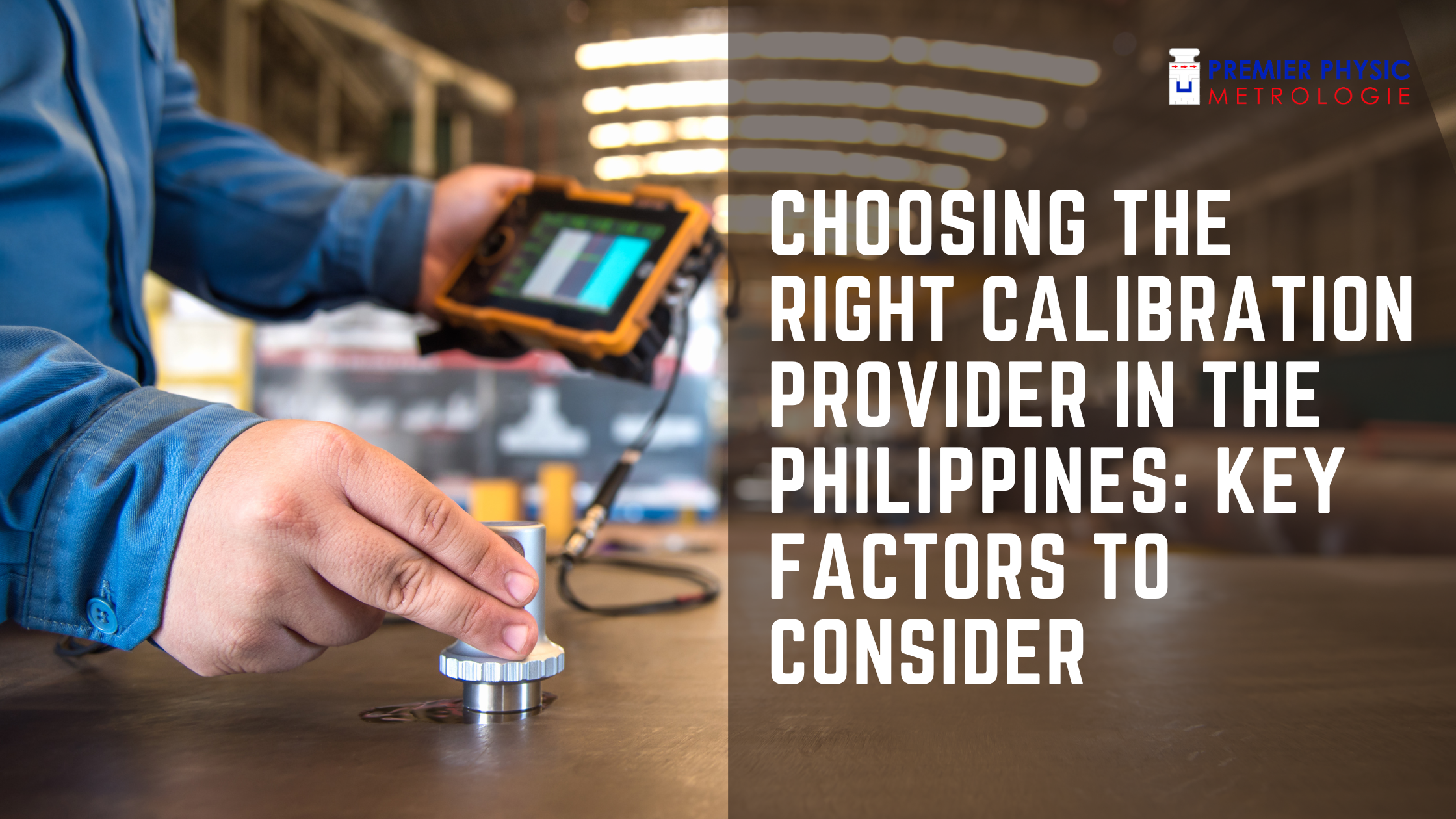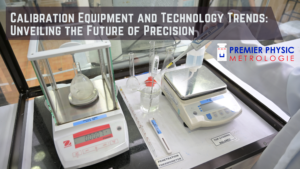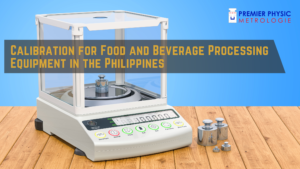Choosing the Right Calibration Provider in the Philippines: Key Factors to Consider
When choosing a calibration service provider in the Philippines, consider factors such as expertise, accreditation, and track record. This comprehensive guide will help you make an informed decision, ensuring accurate and reliable calibration services.
Introduction
In today’s technologically advanced world, precision and accuracy are paramount. For businesses and industries that rely on measurement instruments, ensuring the accuracy of these tools is essential. Calibration is the process of comparing the measurements of an instrument with a known standard to establish its accuracy. To achieve precise results, you need a reputable calibration service provider. This article provides comprehensive guidance on selecting the best calibration service provider in the Philippines, focusing on expertise, accreditation, and track record.
Choosing the Right Calibration Provider in the Philippines: Key Factors to Consider
Calibration is a critical aspect of any industry that uses measuring instruments, such as laboratories, manufacturing, healthcare, and automotive. To make the right choice, consider the following key factors:
1. Expertise in Calibration Techniques and Equipment (LSI Keyword: Calibration Techniques in the Philippines)
A reliable calibration service provider should demonstrate expertise in a wide range of calibration techniques and equipment. Whether it’s electrical, mechanical, dimensional, or temperature calibration, the provider must have skilled technicians proficient in handling various instruments. This expertise ensures that your equipment will be accurately calibrated, enhancing the precision of your measurements.
2. Accreditation and Compliance (LSI Keyword: Calibration Accreditation Philippines)
When choosing a calibration provider, always prioritize those with accredited laboratories. Accreditation ensures that the provider follows strict standards and practices set by relevant authorities. In the Philippines, look for providers accredited by the Philippine Accreditation Bureau (PAB). Compliance with international standards, such as ISO/IEC 17025, further demonstrates the provider’s commitment to quality and competence.
3. Track Record and Reputation (LSI Keyword: Calibration Service Provider Reputation)
A calibration service provider’s track record speaks volumes about their reliability. Research customer reviews, testimonials, and case studies to gauge their reputation. A provider with a strong track record of delivering accurate results and excellent customer service is more likely to meet your calibration needs effectively.
4. Calibration Turnaround Time (LSI Keyword: Calibration Turnaround in the Philippines)
Time is of the essence in any industry. Inquire about the calibration provider’s turnaround time for completing the calibration process. A reputable provider should offer efficient services without compromising on accuracy. Look for those who can provide expedited services when urgent calibrations are required.
5. Calibration Cost and Value (LSI Keyword: Calibration Service Pricing in the Philippines)
While cost should not be the sole determining factor, it is still an essential consideration. Compare the calibration costs of different providers and assess the value they offer. A balance between reasonable pricing and high-quality services is crucial for maximizing your investment.
6. Traceability and Documentation (LSI Keyword: Calibration Traceability)
Traceability is crucial in calibration as it ensures that the measurement chain is documented and can be traced back to national or international standards. A reputable calibration provider will provide detailed documentation, including calibration certificates, procedures, and reports, ensuring transparency and accountability.
7. Range of Services and Calibration Capabilities (LSI Keyword: Calibration Services in the Philippines)
Consider the variety of services a calibration provider offers. Besides standard calibrations, do they provide equipment repair and maintenance? Can they calibrate a diverse range of instruments specific to your industry? A provider with extensive calibration capabilities is more likely to accommodate your unique requirements.
8. Customer Support and Communication (LSI Keyword: Calibration Provider Customer Support)
Effective communication and customer support are essential for a successful calibration partnership. Opt for a provider that is responsive to your inquiries, provides updates during the calibration process, and offers technical assistance when needed.
9. Calibration Frequency and Scheduling (LSI Keyword: Calibration Frequency)
Understanding the calibration frequency of your instruments is vital for compliance and precision. A reliable calibration provider can advise you on the appropriate calibration intervals based on your instrument usage, ensuring consistent accuracy.
10. Handling of Out-of-Tolerance Instruments (LSI Keyword: Out-of-Tolerance Calibration)
Even with precise maintenance, some instruments may fall out of tolerance during calibration. Inquire about how the provider handles such instances and whether they offer recalibration or repair services to bring the instruments back within tolerance.
11. On-Site Calibration Services (LSI Keyword: On-Site Calibration in the Philippines)
For industries with critical instruments that cannot be transported easily, on-site calibration services are invaluable. Check if the provider offers on-site calibration options to minimize downtime and maintain the accuracy of your equipment.
12. Confidentiality and Data Security (LSI Keyword: Calibration Data Security)
In many industries, calibration data can be sensitive and proprietary. Choose a provider that prioritizes confidentiality and data security, ensuring that your information remains protected and confidential.
13. Calibration Training and Resources (LSI Keyword: Calibration Training)
For companies with an in-house calibration team, consider providers that offer training and resources to enhance your staff’s knowledge and skills. Well-trained technicians can improve the overall calibration process within your organization.
14. Emergency Calibration Services (LSI Keyword: Emergency Calibration in the Philippines)
In critical situations, such as unexpected breakdowns or emergencies, quick calibration services are crucial. Check if the provider offers emergency calibration options to address urgent calibration needs promptly.
15. Industry Experience and Specializations (LSI Keyword: Calibration Provider Industry Experience)
Different industries have unique calibration requirements. Look for a provider with experience in serving your specific industry and instruments. They will better understand your needs and be equipped to deliver accurate calibrations.
16. Calibration Equipment and Technology (LSI Keyword: Calibration Technology)
The calibration industry continually evolves with technological advancements. Choose a provider that invests in modern calibration equipment and technology to ensure the highest level of accuracy and efficiency.
17. Calibration Warranty and Guarantees (LSI Keyword: Calibration Warranty)
A calibration provider that stands behind their work will offer warranty and guarantees for their calibration services. This demonstrates their commitment to excellence and provides assurance to customers.
18. International Recognition (LSI Keyword: Calibration Provider International Recognition)
For companies with global operations, consider calibration providers with international recognition. Such providers are likely to meet the stringent requirements of international clients and regulatory bodies.
19. Environmental Responsibility (LSI Keyword: Calibration Provider Environmental Responsibility)
Sustainability and environmental responsibility are increasingly crucial in today’s world. Choose a calibration provider that adheres to eco-friendly practices and minimizes their environmental impact.
20. Calibration Compliance Consultation (LSI Keyword: Calibration Compliance Consultation)
Regulatory compliance is vital in certain industries. Opt for a provider that offers consultation services on calibration compliance, helping you meet the necessary standards.
21. Reviews and References (LSI Keyword: Calibration Provider Reviews)
Before making a final decision, seek reviews and references from the provider’s previous clients. Honest feedback from other customers can provide valuable insights into their services.
22. Calibration Service Contracts (LSI Keyword: Calibration Service Contracts in the Philippines)
Long-term partnerships offer stability and convenience. Inquire about service contracts or agreements that can provide you with continued calibration support.
23. Calibration Frequency Tracking (LSI Keyword: Calibration Frequency Tracking)
Maintaining a calibration schedule can be challenging, especially for organizations with numerous instruments. Check if the provider offers calibration frequency tracking to help you stay organized and up-to-date.
24. Calibration for Niche Instruments (LSI Keyword: Niche Instrument Calibration)
For specialized or niche instruments, finding a calibration provider that can accommodate your unique requirements is essential. Look for providers experienced in calibrating similar instruments.
25. Comparing Multiple Calibration Providers (LSI Keyword: Comparing Calibration Providers)
Lastly, before making a final decision, compare multiple calibration providers. Analyze their strengths, capabilities, pricing, and customer support to make an informed choice.
FAQs
FAQ 1: How often should I calibrate my equipment?
The calibration frequency varies depending on the instrument type and its usage. It is best to consult with your calibration provider to determine the appropriate calibration intervals for your equipment.
FAQ 2: Can I perform calibration in-house?
In-house calibration is possible if your organization has trained and experienced technicians, as well as the necessary calibration standards and equipment. However, outsourcing to a reputable calibration provider often ensures higher accuracy and compliance with standards.
FAQ 3: What are the consequences of using uncalibrated instruments?
Using uncalibrated instruments can lead to inaccurate measurements, affecting the quality of your products or services. Additionally, it may result in non-compliance with regulatory standards, leading to legal and financial implications.
FAQ 4: How do I know if a calibration provider is accredited?
Accredited calibration providers should prominently display their accreditation status on their website or marketing materials. You can also verify their accreditation with the relevant accreditation bodies.
FAQ 5: What if my instrument falls out of tolerance during calibration?
A reputable calibration provider will inform you if an instrument falls out of tolerance. They will provide options for recalibration or repair to bring the instrument back within acceptable limits.
FAQ 6: Can I get expedited calibration services?
Yes, many calibration providers offer expedited services for urgent calibration needs. However, the availability and pricing of expedited services may vary, so it’s best to inquire beforehand.
Conclusion
Selecting the right calibration service provider in the Philippines is crucial for ensuring accurate and reliable measurements. By considering factors such as expertise, accreditation, track record, and more, you can make an informed decision that meets your calibration needs. Remember to prioritize accuracy and quality, as precise calibration is the foundation of successful operations and compliant practices.




